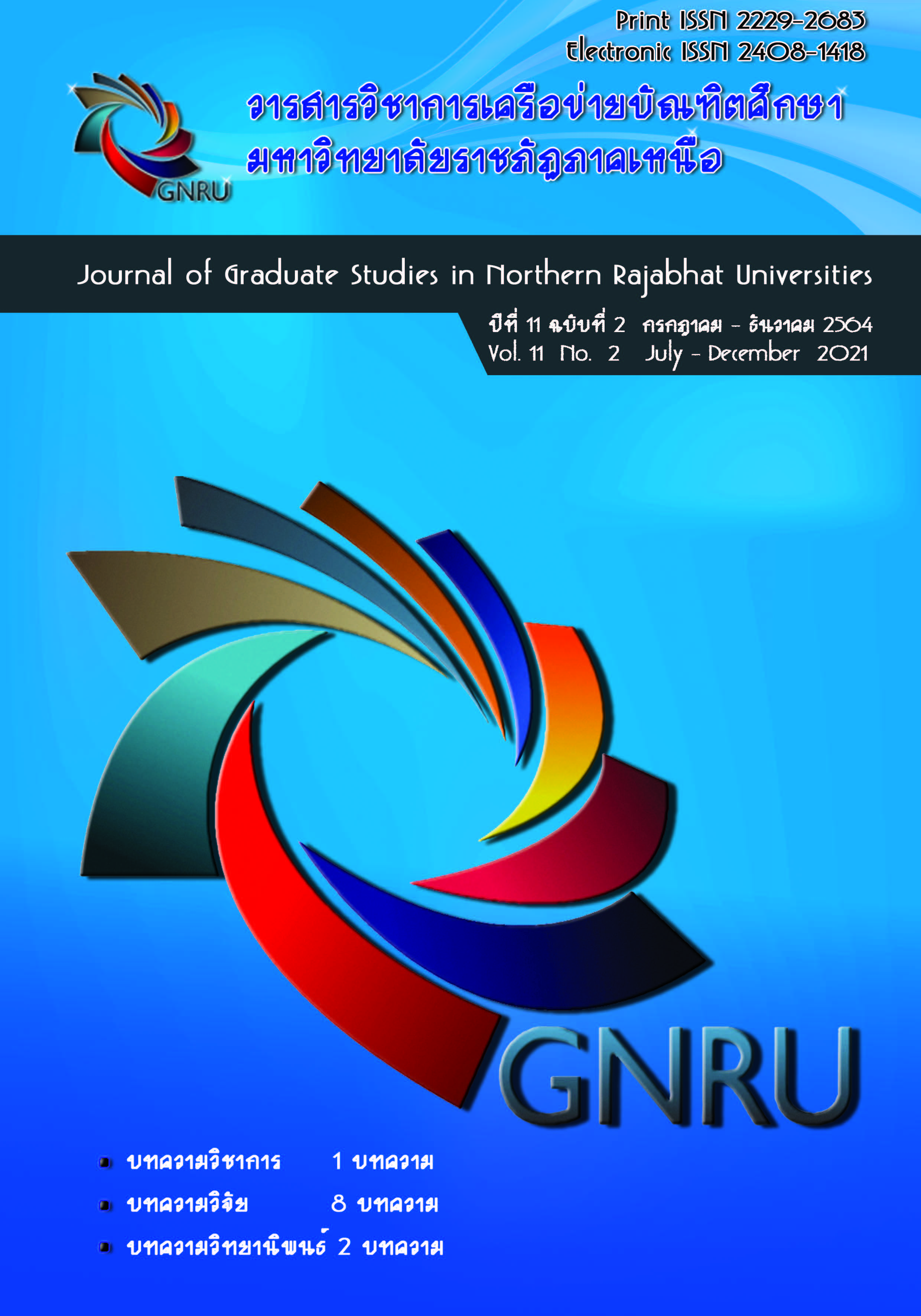มุมมองของผู้เชี่ยวชาญด้านค่ายต่อแนวทางการจัดค่ายวิทยาศาสตร์ เพื่อการเรียนรู้ตลอดชีวิต The View on Guidelines for The Science Camp Towards Lifelong Learning
Main Article Content
Abstract
This qualitative research aimed to investigate the camp experts’ view on guidelines for the science camp towards lifelong learning. Data was collected using semi-structured interview. The information and data were analyzed using content analysis. The research finding were as follows: 1) The major aims of camp are gathering the people who are interested to the same topics and exchanging the experiences and having the collaboration. 2) The success of science camps began with the goals of camps. 3) The aims of science camp were raise positive attitude towards science. 4) The science camp curricula should be encouraged science for all ages of learner. 5) The workers are crucial to develop the science camp towards lifelong learning.
Article Details
References
มหาวิทยาลัยราชภัฏบุรีรัมย์. (มปป.). The curriculum of Faculty of Education. สืบค้นเมื่อวันที่ 17 สิงหาคม 2560 จาก https://reg.bru.ac.th/registrar/program_info_1.asp?
มาลินี นิ่มเสมอ. (2542). คู่มือการจัดค่ายวิทยาศาสตร์. วารสาร สสวท., 27(104).
สำนักการลูกเสือ ยุวกาชาด และกิจการนักเรียน. (2563). สารานุกรมลูกเสือ Scout Encyclopedia. สืบค้นเมื่อวันที่ 13 มีนาคม 2563 จาก http://www.krutujao.com/data%20pdf/003. Book_Scout_Encyclopedia_1.pdf.
ศูนย์พัฒนาชนบทผสมผสานซับใต้. (n.d.). หลักสูตรค่าย STEM Education. สืบค้นเมื่อวันที่ 12 ตุลาคม 2563 จาก https://www.saptaicamp.com/16677081/หลักสูตรค่าย.
ศูนย์วิทยาศาสตร์เพื่อการศึกษา. (2562) . กิจกรรมค่ายครอบครัว DIY Family Rally 2562. สืบค้นเมื่อวันที่ 12 ตุลาคม 2563 จาก https://sciplanet.org/content/4118.
ศูนย์วิทยาศาสตร์เพื่อการศึกษาขอนแก่น. (มปป.). ความรู้พื้นฐานในการจัดค่าย. สืบค้นเมื่อวันที่ 17 สิงหาคม 2560 จาก www.kksci.com/UserFiles/File/ตอนที่%20%20๒.docx.
Ahrenkiel, L. (2014). Offering a Forensic Science Camp To Introduce and Engage High School Students in Interdisciplinary Science Topics. J. Chem. Educ., 2014, 91 (3), 340–344.
APS Group Scotland. (2015). Literature Review on the Impact of Digital Technology on Learning and Teaching. ICF Consulting Services Ltd.
Barab, S. A., & Hay, K. E. (2001). Doing Science at the Elbows of Experts: Issues Related to the Science Apprenticeship Camp. Journal of Research in Science Teaching 2001, 38 (1), 70-102.
Bureau of Academic Affairs and Educational Standards. (2011). The guideline for Asean camp activities. Retrieved. (January 25, 2018), from http://www.secondary41.go.th/ doc/Asian/asean-camp.pdf.
Chayakiwong, U. (2008). The Support on Non – Formal Education and Informal Education. Bangkok: Saengdao Publishing Co.,Ltd.
Fields, D. A. (2009). What do Students Gain from a Week at Science Camp? Youth perceptions and the design of an immersive, research-oriented astronomy camp. International Journal of Science Education Vol. 31, No. 2, 15 January 2009, 151–171.
Kubat, C. (2016). Fieldtrips, Lectures, Hands-on and Open Inquiry in the Science Camps in Halle (Saale), Germany. SciCamp – A Network for Science Camps in Europe Evaluation Report, Lifelong Learning Programme. Retrieved. (April 15, 2017), from https://didaktik.geographie.uni-halle.de/minarbeiterinnen/kubat/.
LASCALA, M. (2020). 52 Best Virtual Summer Camp Ideas to Keep Kids Entertained This Summer. Retrieved. (October 12, 2020), from https://www.goodhousekeeping.com/life/parenting/a32611709/virtual-summer-camp-ideas/.
Lampang Science Centre for Education. (n.d.). Eederly Camp for Good Health. Retrieved. (October 12, 2020), from http://oniepr.com/news_show.php?nid=126658.
Nimsamure, M. (1999). Science Camp Organization Manual. IPST MAGAZINE. 27(104), 13 – 18.
Office of The National Economic and Social Development Council. (2014). The Twelfth National Economic and Social Plan (2017-2021). Retrieved. (November 22, 2018), from https://www.nesdc.go.th/ewt_dl_link.php?nid=6422.
The Commission on Protection and Coordination of National Youth. (1989). The research report of studies on model of camp organization for child and youth. Bangkok: n.p.
UNESCO. (1970). Strategic management. London: Chapman and Hall.
UNESCO. (2010). Current Challenges in Basic Science Education. United Nations Educational, Scientific and Cultural Organization. Retrieved. (December 15, 2015), from http://unesdoc.unesco.org/images/0019/001914/191425e.pdf.


